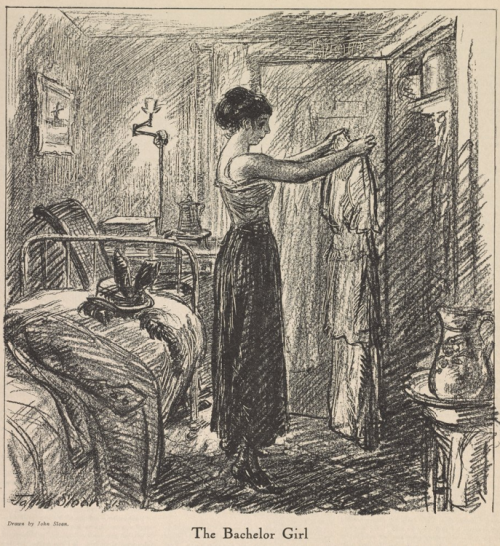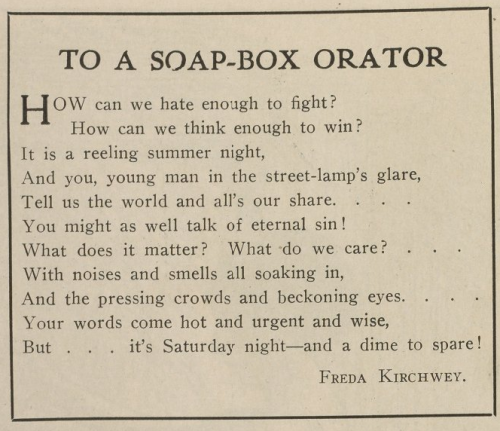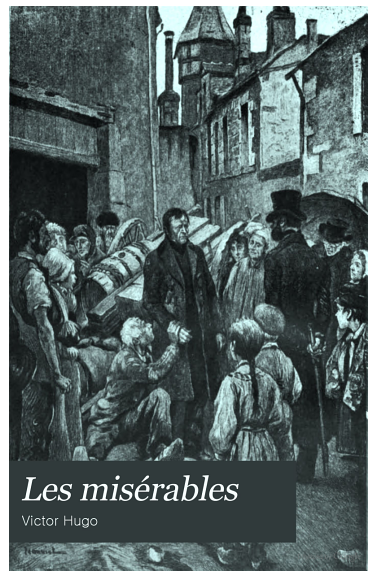Hellraisers Journal: "Fantine in Our Day" by Eugene Debs from the International Socialist Review
while there is a criminal element, I am of it,
and while there is a soul in prison, I am not free.
-Eugene Victor Debs
~~~~~~~~~~~~~~~~~~~~~~~~~~~~~~~~~~~~~~~~~~~~~~~~~~~~~~~~~~~~~~~~~~~~~~~~~~
Monday March 6, 1916
From the International Socialist Review: Comrade Debs on the Fantines of Our Day
From this month's edition of the Review, Comrade Debs urges class solidarity and human compassion for the "girls, women who have walked the path of thorns and briers with bare and bleeding feet; who know the ways of agony and tears, and who move in melancholy procession as capitalist society's sacrificial offering to nameless and dishonored graves."
FANTINE IN OUR DAY
By EUGENE V. DEBS
----------
THE reader of "Les Miserables" can never forget the ill-starred Fantine, the mournful heroine of Hugo's immortal classic. The very name of Fantine, the gay, guileless, trusting girl, the innocent, betrayed, self-immolating young mother, the despoiled, bedraggled, hunted and holy martyr to motherhood, to the infinite love of her child, touches to tears and haunts the memory like a melancholy dream.
Jean Valjean, noblest of heroes, was possible only because of Fantine, sublimest of martyrs.
Fantine—child of poverty and starvation—the ruined girl, the abandoned mother, the hounded prostitute, remained to the very hour of her tragic death chaste as a virgin, spotless as a saint in the holy sanctuary of her own pure and undefiled soul. It was of such as Fantine that Heine wrote: "I have seen women on whose cheeks red vice was painted and in whose hearts dwelt heavenly purity."
The brief, bitter, blasted life of Fantine epitomizes the ghastly story of the persecuted, perishing Fantines of modern society in every land in Christendom. Everywhere they are branded as "prostitutes" and shunned as lepers. Never was the woman born who could sink low enough—even in the upper class—to be called a "prostitute," and the man who calls a woman by that hideous epithet bears it upon his own forehead.
Why are the Fantines of our day charged with having "gone wrong" and with being "fallen women"? Not one in all the numberless ranks of these sisters of ours who are so despised by the soulless society of which they are the off spring has "gone" wrong, and not one has "fallen" to her present debased and unhappy state. If there is on earth a woman who has "fallen" in the sense usually applied to women who mortgage their honor in the battle for bread I have yet to see or hear of her.
There are certain powerful social forces which in the present order of things make for what is known as "prostitution," but it is to be noted that there are no "prostitutes" in the upper classes of society. The women in the higher strata may be sexually as unchaste as they will, they are never "prostitutes." The well-to-do woman, not driven by these forces to sell her body to feed her child, may yet fall into the grossest sexual immorality through sheer idleness and ennui, but she has not "gone wrong"—no one thinks of her as a "fallen woman," or dreams of branding her as a "prostitute," and unless she is flagrantly indiscreet in the distribution of her favors her social standing is not materially affected by her moral lapses.
But let a poor shop-girl, a seamstress or a domestic servant—in a word, a working girl—commit some slight indiscretion, and that hour her doom is sealed, and she might as well present herself at once to the public authorities and have the scarlet letter seared into her forehead with a branding iron. She may be pure and innocent as a child, but the "benefit of the doubt" never fails to condemn her. She has "gone wrong," is now a "fallen woman," and the word "prostitute," coined exclusively for her, now designates the low estate which is to be her lot the rest of her life.
A rich woman may sink as low as she can—and a woman can sink very low in the moral and spiritual scale without necessarily indulging her carnal appetites—she is never a "prostitute." She does not sell herself from necessity but indulges herself from desire and therefore is not a "prostitute."
"Prostitution" as generally understood has economic as well as moral and sexual significance and application. "Prostitution" is confined to the "lower class" and bears a direct and intimate relation to the exploitation of the "upper class."
The Fantines of modern society, the "prostitutes" of the present day are wholly of the working class; the segregated area is populated entirely by these unfortunate sisters of ours, and the blasted life and crucified soul of every mother's daughter of them pleads in mute agony for the overthrow of the brutal, blighting, bartering system which has robbed them of their womanhood, shorn them of every virtue, reduced them to the degraded level of merchandise and finally turned them into sirens of retribution to avenge their dishonor and shame.
As these lines are being written the report of the Vice Commission of the State of Maryland appears in the press dispatches to inform the public that investigation of vice recently concluded in the great cities of that state discloses the fact—not at all new or startling to some of us at least—that many of the girls who "go" wrong and recruit the ranks of the "fallen" women have been seduced and ruined by their employers, bosses, and other stripes of "superiors" of one kind or another, AS A CONDITION OF THEIR EMPLOYMENT. Countless others, cheated of their childhood, pursued from birth by poverty, were doomed before their baby-eyes opened upon a world in which it is a crime to be born, a crime punishable by cruel torture, by starvation of body and soul, and by being cast for life into a den of filth to glut the lust of its beastly keepers.
The innumerable Fantines of our day, found lurking like scarlet spectres in the shadows wherever capitalism casts its withering blight of exploitation, are typified in the child of the garret described by Hugo, the child of slum and street: "There was in her whole person the stupor of a life ended but never commenced." It is these deflowered daughters of poverty, robbed and degraded, that are forever "dropping fragments of their life upon the public highway."
The story, inexpressibly pathetic, is a commonplace. It has been repeated a thousand times in every tongue. Here it is again as told by a writer of today: "She has been fatherless. She has gone hungry. She has known bitter cold, shame, rags, scorn, neglect, want in all its forms. She has needed dolls, flowers, play, songs, brightness, sympathy, care, love and has been given the stone of hard labor in stead. Of all the blessings to which childhood is entitled this child has been robbed. In the brief life of this child there is pathos, endurance, long-deferred hope, experience that scars, denial, self- pity, hunger of the spirit, STARVATION OF A CHILD'S SOUL FOR LOVE, HOME, HOPE, HELP."
Fantine is the greatest character in fiction and the highest type of social martyrdom. The face of Fantine, in which we behold "the horror of old age in the countenance of a child," is the mirror which reflects society's own sin and shame.
The Fantines have been raped of their virtue, robbed of their womanhood, dishonored, branded, exiled; the ignorance of childhood is with them still, but not its innocence; they have been shamelessly prostituted, but they are not prostitutes. They are girls, women who have walked the path of thorns and briers with bare and bleeding feet; who know the ways of agony and tears, and who move in melancholy procession as capitalist society's sacrificial offering to nameless and dishonored graves.
The very flower of womanhood is crushed in capitalism's mills of prostitution. The girls who yield are the tender, trusting, loving ones, the sympathetic and unsuspecting, who would make the truest of wives and the noblest of mothers. It is not the hard, cold, selfish and suspicious natures that surrender to the insidious forces of prostitution, but the very opposite, and thus is the motherhood of the race dwarfed and deformed and denied its highest functioning and its divinest expression.
The system which condemns men to slavery, women to prostitution, children to poverty and ignorance, and all to hopeless, barren, joyless lives must be up rooted and destroyed before men may know the meaning of morality, walk the highlands of humanity, and breathe the vitalizing air of freedom and fellowship.
From The Masses of February 1915:
A Drawing by John Sloan-

A Poem by Freda Kirchwey-


SOURCE
The International Socialist Review, Volume 16
-ed by Algie Martin Simons, Charles H. Kerr
Charles H. Kerr & Company,
July 1915-June 1916
https://books.google.com/books?id=9VJIAAAAYAAJ
ISR March 1916
https://books.google.com/books/reader?id=9VJIAAAAYAAJ&printsec=frontcove...
"Fantine in Our Day" by Eugene V. Debs
https://books.google.com/books/reader?id=9VJIAAAAYAAJ&printsec=frontcove...
IMAGES
Fantine kneeling before Javert
https://en.wikipedia.org/wiki/Fantine
The Masses, February 1915,
The Bachelor Girl by John Sloan
http://dlib.nyu.edu/themasses/books/masses047/7
The Masses, Feb 1915, Poem, Freda Kirchwey
http://dlib.nyu.edu/themasses/books/masses047/8
Les miserables, Victor Hugo, 1887, Cover
https://books.google.com/books/reader?id=XdwPAAAAYAAJ&printsec=frontcove...
See also:
Les Misérables
-by Victor Hugo
T.Y. Crowell & Company, 1887
https://books.google.com/books/reader?id=XdwPAAAAYAAJ&printsec=frontcove...
London by Heinrich Heine
From The Cry for Justice by Upton Sinclair, 1915
https://books.google.com/books/reader?id=d8gRAAAAIAAJ&printsec=frontcove...
"Report of Vice Commission of Maryland"
-from the Chicago Broad Ax of Jan 1, 1916
http://chroniclingamerica.loc.gov/lccn/sn84024055/1916-01-01/ed-1/seq-1/
"Debs, Jesus & The 'Woman in Scarlet'"
by Stephen J. Taylor
http://blog.newspapers.library.in.gov/eugene-debs-jesus-the-woman-in-sca...
"A Daughter of the Revolution" by John Reed
From The Masses of February 1915
http://dlib.nyu.edu/themasses/books/masses047/5
``````````````````````````````````````````````````````````````````````````````````````````````



